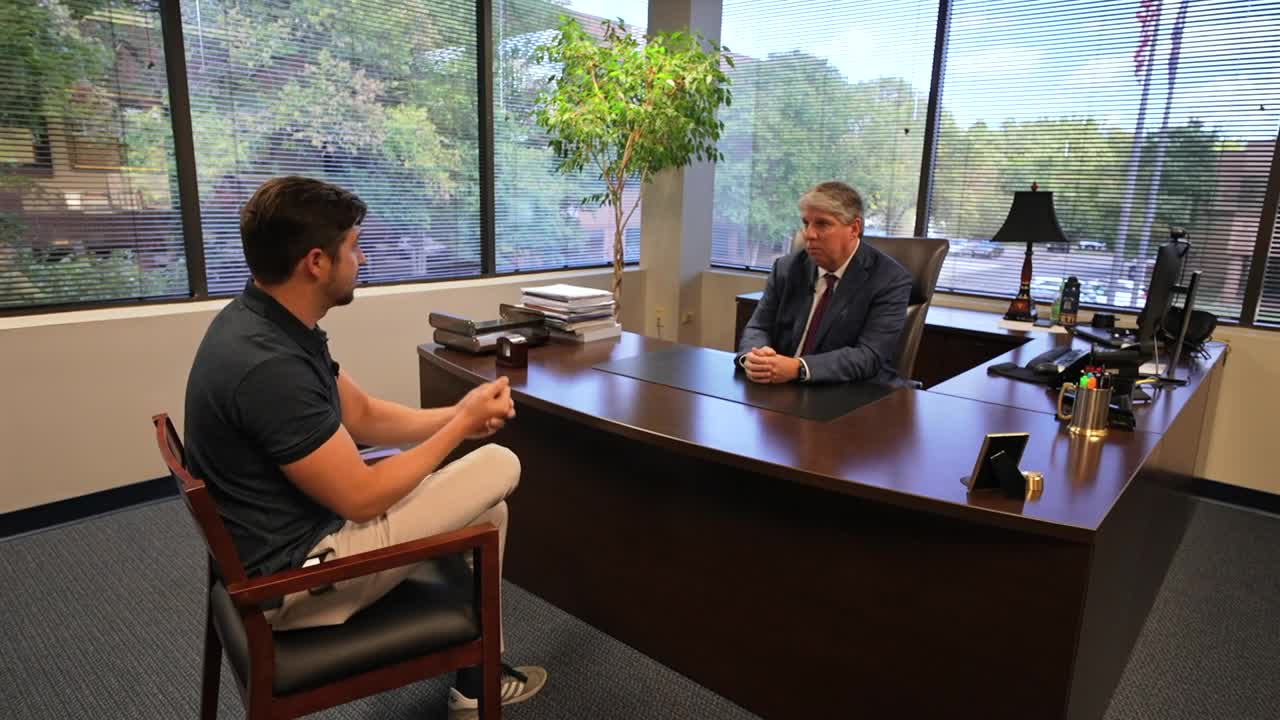RICHMOND, Va. — Nearly 200 nursing homes across Virginia are suing the state for its alleged failure to give them increased Medicaid funding, as directed by lawmakers. Meanwhile, Gov. Glenn Youngkin's administration indicated it has no plans to hand over the money and raised concerns about the quality of care in facilities.
Keith Hare, the president of the Virginia Health Care Association (VHCA), which represents the industry and helped lobby for the additional funding in question, said 181 VHCA members intend to file a petition before the Supreme Court of Virginia this week.
The facilities allege the state Medicaid agency, the Department of Medical Assistance Services (DMAS), refused to raise reimbursement rates for nursing homes in violation of the law.
“To say they were shocked and disappointed would be an understatement," Hare said about the impacted providers. “For our facilities to retain and hire the needed individuals to care for the residents and the patients in these facilities, we need every single bit of funding we possibly can.”
During this past General Assembly session, legislators approved budget language that would essentially change the way DMAS sets rates, which would result in an extra $21 million to be distributed to facilities per year over the next two years.
DMAS sets reimbursement rates in three categories: direct care, which is meant to pay for staff costs; indirect care, which is meant to pay for overhead and administrative costs; and capital, which is meant to pay for building costs. The agency combines the categories into a total reimbursement rate that Medicaid pays to a facility for every Medicaid patient it serves per day.
The particular rate that the VHCA claims DMAS failed to adjust as required was the direct care rate. The change was meant to address a "funding gap between the cost of care and what Medicaid pays because the Medicaid base rate remains too low," according to the VHCA.
“That is bedside care. That is CNAs, LPNs, RNs, that are again providing care for the patients and the residents in the facilities who are on Medicaid, and these are our sickest and really our most poor residents in the Commonwealth," Hare said.
But Youngkin's administration contends the nursing home industry has already received funding boosts that didn't result in improvements to quality of care.
“Nursing homes had already received significant rate increases in previous budgets, resulting in payments rising $1.3BM since 2020. The current biennial budget includes $81M total for value based nursing, specifically, yet quality was getting worse, not better. This new rate increase did not link these funds in any way to increases in quality. The Governor believes Virginians deserve better." Youngkin spokesperson Peter Finocchio said in response to the petition.
WATCH: Man says his wound became 'infested' with maggots at Henrico nursing home
Youngkin initially attempted to veto the increased funding in May, pointing to $40 million in bonus payments already set aside for facilities that meet certain performance metrics. DMAS ties that funding to the avoidance of negative outcomes, such as residents who get bed sores and urinary tract infections.
"Given my fiduciary responsibility to Virginia’s taxpayers, it would not be fiscally prudent for me to expand ongoing programmatic expenditures at this time," Youngkin wrote about his explanation of the veto at the time.
The General Assembly then overrode his veto, and Youngkin attempted to veto it again.
However, Clerk of the House of Delegates Paul Nardo said the last veto was unconstitutional, and he refused to recognize it because Youngkin vetoed the portion of the language requiring new methodology for rate setting but not the money included to fund the new rates.
When asked about the matter in May, Youngkin said, “I strongly disagree with the clerk’s position. These vetoes are wholly consistent and compliant with my authority under the constitution, and therefore these vetoes will stand, and that’s how we’re going to run the executive branch going forward.”
Finocchio indicated the governor still stands by that statement.
The nursing homes' petition claims Youngkin and DMAS are ignoring the law and requests that the Supreme Court of Virginia compel DMAS to give facilities the increased rates.
“We would love for the governor to reverse his decision. He can reverse his decision tomorrow," Hare said.

The petition follows an apparent emphasis that the Youngkin administration has placed on holding facilities accountable, as health officials reported in July that the commonwealth ranks 38th in the country when it comes to quality of care in nursing homes.
Additionally, previous CBS 6 investigations into two nursing homes' financial records have revealed unusually large rent payments that experts said facilities paid to themselves, which in turn, likely limited resources leftover for direct care. While DMAS calculates reimbursement rates for direct care, indirect care, and capital expenses, there are no regulations requiring facilities to meet spending ratios and the state has no authority to broadly oversee facilities' business practices.
“We've seen some examples of that in a few facilities in Virginia. So can you be confident that direct care reimbursements are going towards direct care?” reporter Tyler Layne asked Hare.
“The best indicator that we see of money going toward direct care is an increase in wages. Pre-pandemic, an average certified nursing assistant in Virginia made about $13 an hour, which was far too low. That average is now well over $20 on average, and in many parts of the state, reaches $25 on average," Hare said.
He added, "It's funding like the governor vetoed, which doesn't allow these facilities to increase those salaries even more."
CBS 6 also requested a response from DMAS for this story and has not yet heard back.






